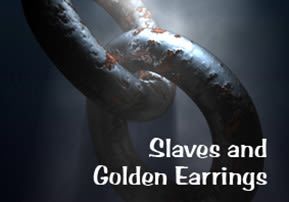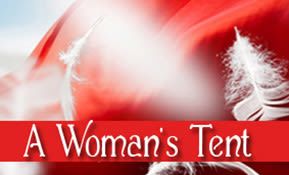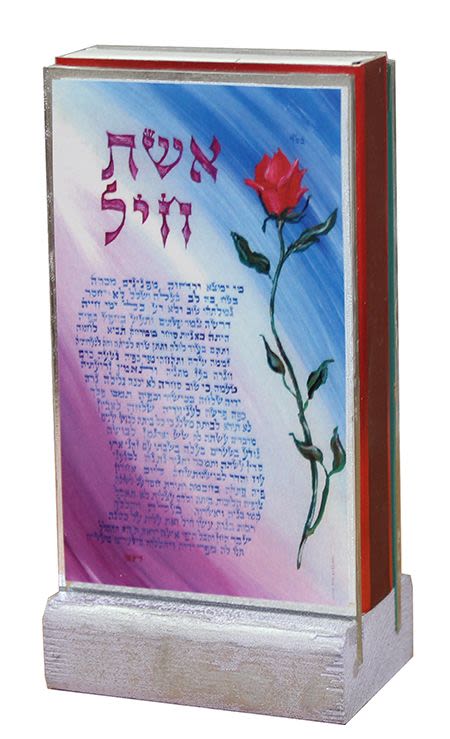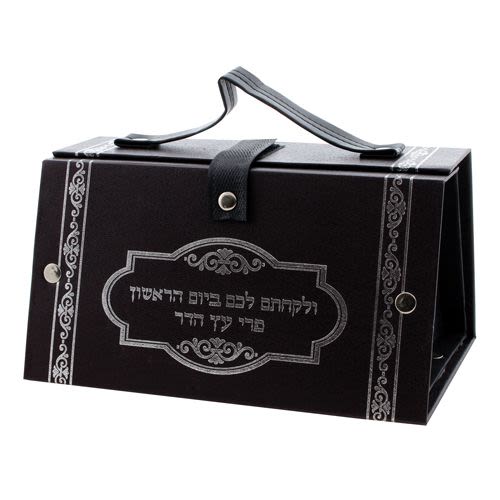
Ki Tisa: Slaves and Golden Earrings
From all the golden jewelry owned by the Jewish people, the Torah specifically emphasizes earrings in connection with making the Golden Calf…

Parshat Ki Tisa
WOMEN REFUSED TO MAKE THE GOLDEN CALF
“Aharon said unto them; take off the golden earrings which are in your wives' ears…” (Shemot 32:2). Rashi explains that Aharon had in mind to postpone making the Golden Calf, since he knew that women would not easily part with their jewelry. He hoped that Moshe would arrive in the meantime. Unfortunately, the men chose not to wait until the women made up their minds, but took off their own golden earrings instead. This is understood from the following verse: “All the people pulled off the golden pendants that were in their ears, and brought them to Aharon” (Shemot 32:3). The word “their ears” (ozneihem) is written in the masculine form suggesting the fact, that the men pulled off their own earrings, without any reference to the pendants belonging to the women. Mincha Belula is of the opinion that the men pulled the earrings from their wives by force. In any case, the women refused to participate in the making of the Golden Calf.
TO BE RENEWED LIKE THE MOON
When the wives refused to hand over earrings to their husbands, they told them, “We will not listen to you and make a disgusting thing, which has no power.” For this, G-d rewarded them in this world by giving them the primary responsibility to celebrate Rosh Chodesh (The festival of the New Moon) over the men. Hashem also gave them the reward in the World to Come, to be “renewed like the moon…” (Pirkei D'Rabbi Eliezer 125). The Tur explains why celebrating Rosh Chodesh was a suitable reward for the women for not participating in the Golden Calf. The three pilgrim festivals correspond to Avraham, Yitzchak and Ya’acov, whereas, the festivals of Rosh Chodesh corresponded to the twelve tribes. When the tribes sinned by making the Golden Calf, Rosh Chodesh was taken away from them and given to their wives. There are different opinions as to the extent that women should refrain from work to celebrate Rosh Chodesh, and as to whether this is an optional custom or a halachic obligation. The Beur Halacha concludes that it is the general consensus that women must refrain from some kind of work, in particular heavy work, in order to make the day special and different.
THE GOLDEN CALF – A TANGIBLE OBJECT
According to Yehudah HaLevi, the sin of the Golden Calf was not idol worship, but rather a desire to serve G-d by tangible means. For the nations of that era, physical forms and symbols functioned as focal points for prayer and meditation. The Israelite masses hoped Moshe would bring down something concrete from heaven to which they could direct their hearts and thought the Tablets were intended to serve this purpose (The Kuzari 1:37). They lacked the complete understanding that the Almighty Who is in charge of nature and everything within it can never be contained within a physical object.
ROSH CHODESH – ETERNAL RENEWAL
What is the underlying connection between the refusal to give earrings for the Golden Calf and the specific reward of celebrating the New Moon? The mitzvah of sanctifying the New Moon was given to Israel on the verge of the Exodus, in order to teach Israel to break with the Egyptian mentality of idolizing nature. The moon wanes and waxes, and therefore, cannot be confined to any fixed form. We were handed the responsibility to determine the date of Rosh Chodesh by means of witnesses, to teach us how nature has no independent power, but rather is subordinate to the consciousness of the person performing a mitzvah. The fact that Rosh Chodesh is not predetermined through fixed calculations ensures eternal renewal, contrary to the Egyptian outlook preoccupied with death and stagnation. When women refused to give their jewelry to the Golden Calf, they confirmed the lesson of the New Moon. While, the men were hanging on to the old, and desired something concrete to rely on, the women were ready for the renewal of Divine commandments embodied in the mitzvah of the New Moon. They understood that in the same way that the New Moon cannot be contained within a fixed date, so too G-d cannot be contained within any bounds, as He is the life force that renews everything in nature. Even the physical appearance of the moon testifies to its dynamic message. Perhaps it is easier for women to tune into this “moon counsciosnes” of flexibility because our role as caretakers does not always result in tangible rewards. Our children train us to act with patience, a quality that the men at Sinai lacked. Their impatience in waiting for Moshe made them decide to construct a replacement.
GOLDEN EARRINGS AND THE SLAVE MENTALITY
Sha’arei Aharon brings in the name of the Ariza”l, that a Torah scholar may be dominated by his wife because in an earlier reincarnation he did not stop the vast multitude from making the Golden Calf. From all the golden jewelry owned by the Jewish people, the Torah specifically emphasizes earrings in connection with making the Golden Calf. This reminds us of the law regarding the Jewish slave who refuses to go free. His ear is pierced and he must now serve until all the slaves go free at the end of the jubilee cycle (Shemot 21:6). Rashi asks why the ear had to be pierced rather than any other limb of the servant's body. He answers, “The ear which heard G-d say on Mount Sinai, 'For unto Me the children of Israel are servants' (Vayikra 25:55), yet its owner went and procured for himself another master – let it be pierced.” The earring worn in the pierced ear symbolizes an inability to serve G-d directly. The slave who exchanged the Holy Master with a mortal master, is unable to surrender completely to G-d, but requires an intermediary between himself and his Eternal Master. From the fact that the men at Sinai wore earrings like the Egyptian men, we learn that they had not detached themselves from the slave mentality of Egypt.
The Golden Calf was supposed to be a replacement for Moshe, as it states: “Arise, make us gods, which shall go before us; for this Moshe, the man that brought us out of the Land of Egypt, we do not know what has become of him” (Shemot 32:1). Thus, the men at Sinai can be compared to the slave who clings to his mortal master. The women were more independent. Although “a Kosher wife acts according to the will of her husband,” (Yalkut Shimoni 4:42), the women at Sinai understood that this only applies when obeying would bring them closer to G-d. The men needed a leader they could blindly obey, whereas the women did not need an intermediary, for they were directly in tune with the eternal will of G-d.
***
Rebbetzin Chana Bracha Siegelbaum is Director of Midreshet B’erot Bat Ayin in Gush Etzion. This article is an excerpt from her book Women at the Crossroads: A Woman’s Perspective on the Weekly Torah Portion, reviewed by The Jerusalem Post, The Jewish Press, Voices Magazine, Good Reads, and WordPress/JewishPress and more. To order this book, click here.












Tell us what you think!
Thank you for your comment!
It will be published after approval by the Editor.